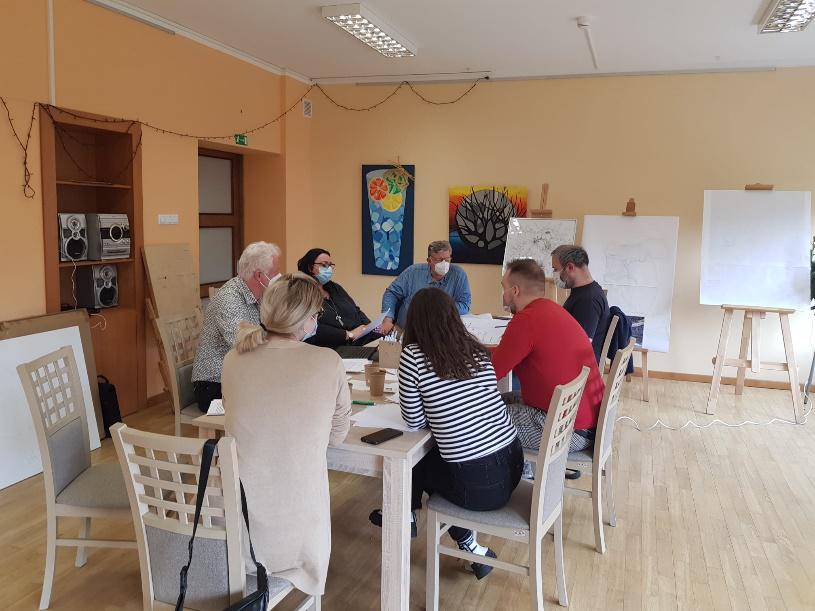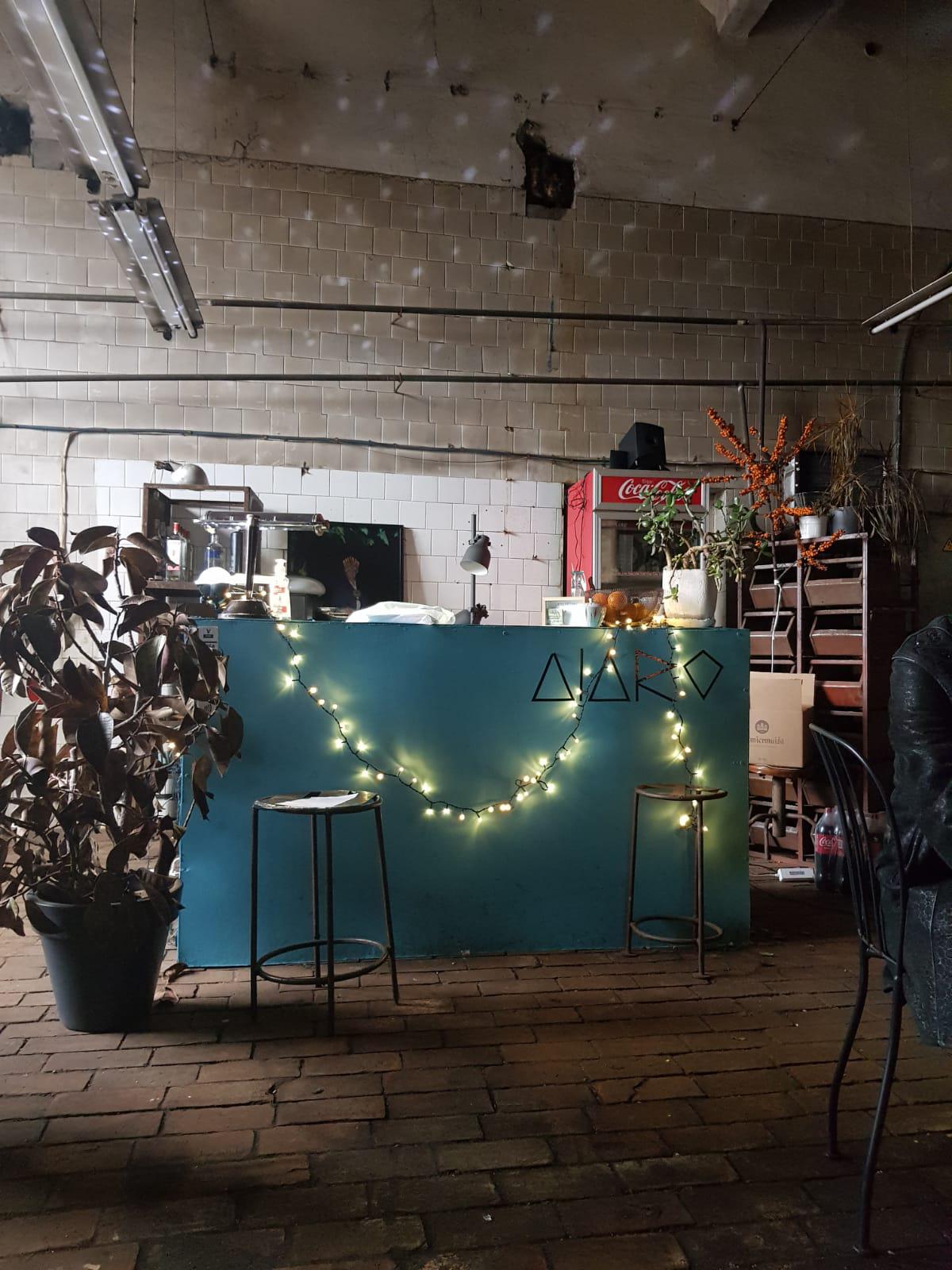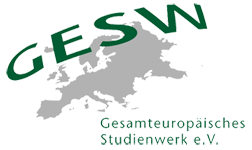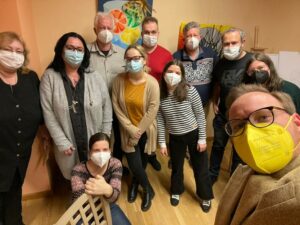„Should I stay or should I go?“ New verve for youth participation and opportunities for young people in rural areas
Lina Strotmann, Gerhard Schüsselbauer
The possibilities for youth participation have been significantly limited at least since the outbreak of the Covid-19 pandemic. One observes an increasing disorientation and inactivity, be it at the local level, but also in engagement for overarching political, societal, and social issues. New momentum for active youth participation is therefore imperative.
Also, against the background of an increasingly problematic perception of a European identity and the defence of European values against a national approach, strengthening the participation of young people from different European countries is very significant. The Covid-19 pandemic has provoked many discussions about national approaches. The self-image of one’s own nation or state is in danger of being pushed too far to the fore and thus attacking the open, liberal democracy in the EU.
The goals of building a Small-scale Partnership are to create awareness and understanding of the different possibilities of youth participation, to promote intercultural and intergenerational dialogue, to promote the values of freedom, tolerance and respect for human rights, and to strengthen European identity. The stronger networking of the participating organizations from Latvia, Poland, Romania and Germany wants to make an important contribution to strengthening youth structures away from the everyday school life. The representation of the very diverse interests of young people is visibly weakening, especially in times of the pandemic. There is an increased retreat into social media spaces as opposed to active engagement at the local level. In the mutual exchange of organisations from the partner countries, best-practice examples can be identified in order to build sustainable cooperation structures. In addition to the exchange of experiences, an important goal is the consolidation of cooperation in youth policy aspects. Another important aspect is the focus on emigration and the lack of prospects for many young people in countries such as Poland, Latvia and Romania. This includes internal migration in these countries due to the lack of development opportunities for young people in smaller communities. Furthermore, the handling and integration of migrants is a huge challenge in all countries. Not only in Germany, but also in the aforementioned partner countries, the integration of young people with a migration background is a special aspect of youth policy work at the local level.
Objectives of our small-scale partnership
Raise awareness of local participation and activities
Capacity building of partner organizations and involved young people in rural areas
Networking and exploitation of synergies through the cooperation of different local partners.
European dimension of the exchange of experiences
Rebuilding opportunities for youth participation after the Covid-19 pandemic.
Kick-off meeting in Dobele / Latvia
The German participants of the Kick-off Meeting in Latvia, Gerhard Schüsselbauer (GESW), Eggert Hardten (Mostar Friedensprojekt) and Lina Strotmann (University of Bielefeld) were the first participants to arrive in Latvia on 17th February. After a one-hour drive, we reached our destination Dobele. Dobele is a small town in the southwest of Latvia with around 9.000 inhabitants. After a quick check in, in the local hotel we went over to a little restaurant, to try some traditional Latvian food. After lunch and a little stroll through the town-centre we waited for the other participants to arrive and to meet them for the first round of getting to know each other to start the seminar.
On Friday the real seminar work started. We all got together in the art school of Dobele where the upcoming small-scale partnership project was planned. The aim of the project is to encourage youth participation in rural areas in Latvia, Romania, Poland, and Germany. It was specified which activities were to be done during the project. For each activity, a responsible and dates had to be found. The first activity, the kick-off meeting, was obviously already taking place and kindly organised by Miks Celmiņš from the Latvian NGO Make Room. The next activity will be the preparation of the training course, which will be organised by Viorela Chiper, Ana Marin and Diana Rusu from the Romanian organisation Puzzle OptimEast in Târgu Neamţ. After this preparation the training course will be held in Vlotho in the end of August. The training course will be followed by the implementation of the action plans, figured out during the training course. The last two activities will be the final conference/seminar in Poland and the dissemination, organised by Michał Pietrzok and Tomasz Budziosz representing the Fundacja Europejski Instytut Outsourcingu in Orzesze. The highlight of this day was the possibility to see the art school of Dobele. It is an amazing local initiative to give kids in Dobele extracurricular after school activities. During our lunch break a graduate of the art school gave us a tour showing us all the amazing work of the pupils.
Saturday then was all about getting to know Latvia. The day started with a visit of the Museum of Dobele, which we got to visit outside the opening times. Then at 10h30 we drove by bus all the way to Kuldīga, where Miks showed us an amazing local initiative called Demokrātijas kvartāls. Kuldīga is a town in the west of Latvia with around 12.000 inhabitants. The owner of this initiative did a workshop, called the Europe Museum with us and gave us a tour of the premises. During the seminar workshop we had to look for objects we had with us that symbolized Europe for us and write a little description text, explaining what this object means to us. After a visit of the town of Kuldīga we drove over to Alsunga, a town with 1.300 inhabitants. In Alsunga we got the chance to learn about the initiative of a “smart town” and the Alsungian traditions while drinking a traditional drink made of hot milk. Alsunga is a town with many traditions of its own as most inhabitants are Suiti. The Suiti are a catholic minority in the mostly protestant Latvia. After our visit to Alsunga we headed straight to Jūrmala to see the Baltic Sea. Following our visit of the beach we had a two-hour drive to Riga. The kick-off seminar was concluded on Sunday morning. The most impressive thing of our travelling on Sunday was to see with how much motivation and love those local initiatives were started and what a few motivated people can move in rural areas.



